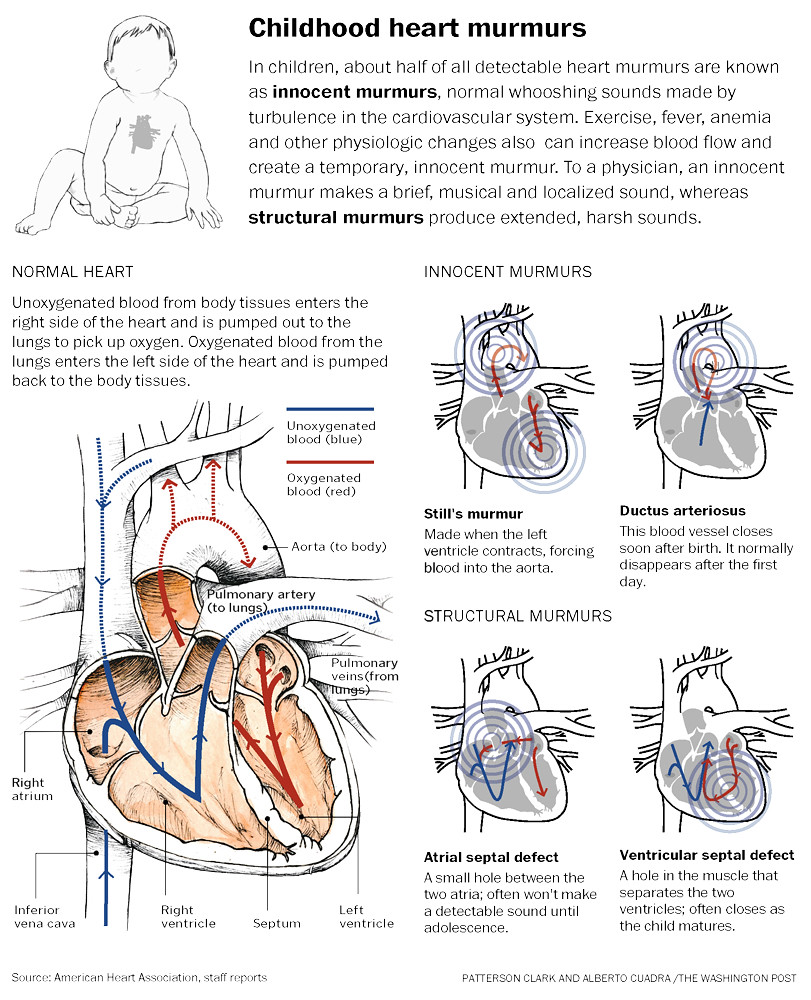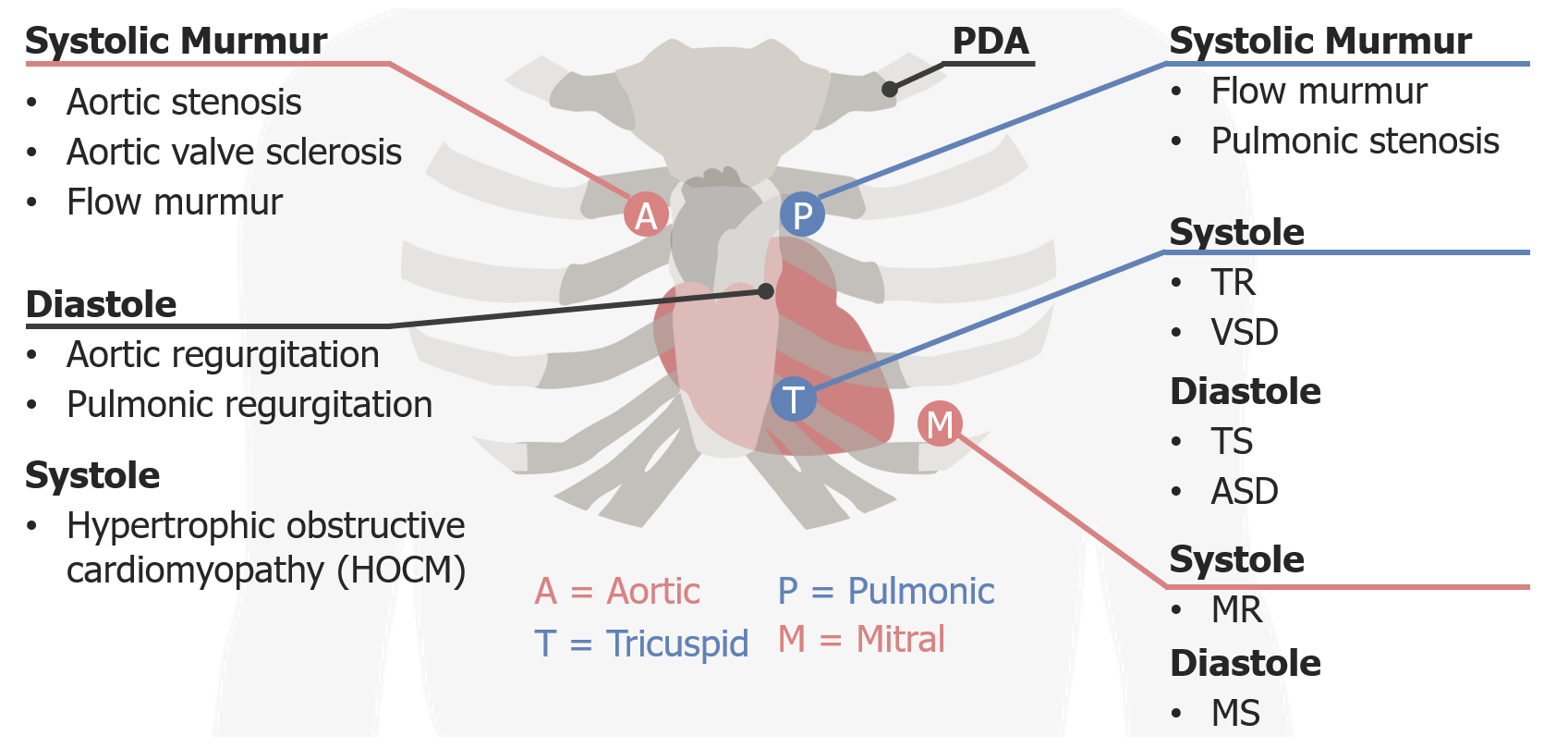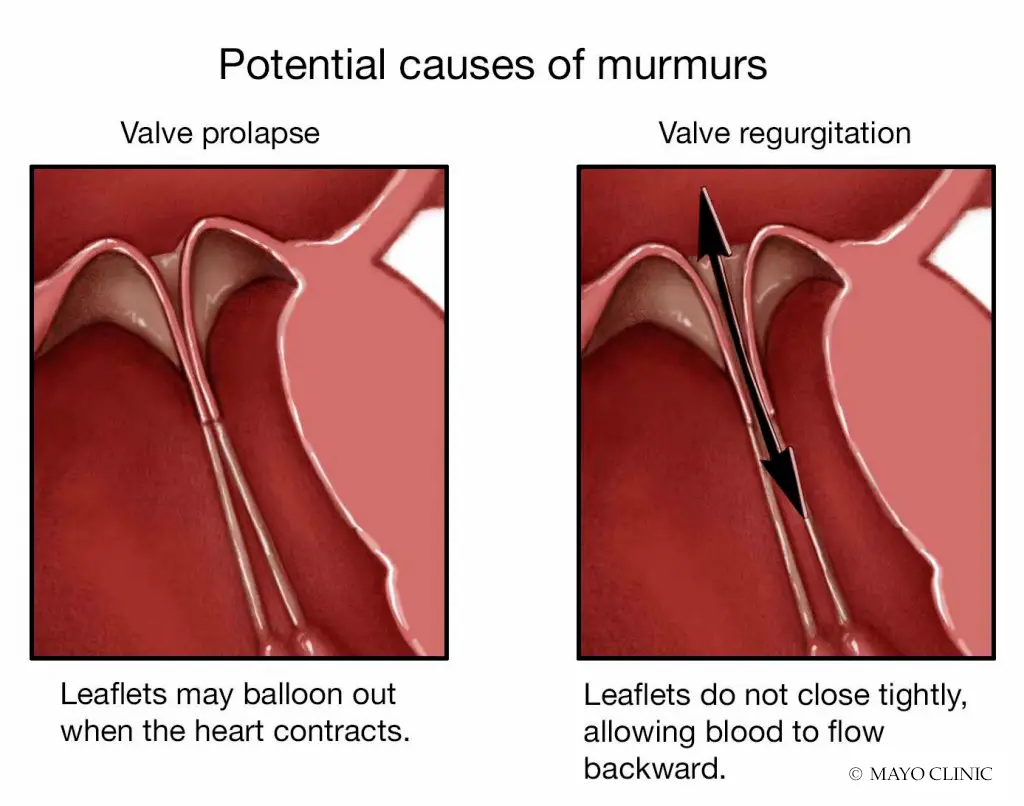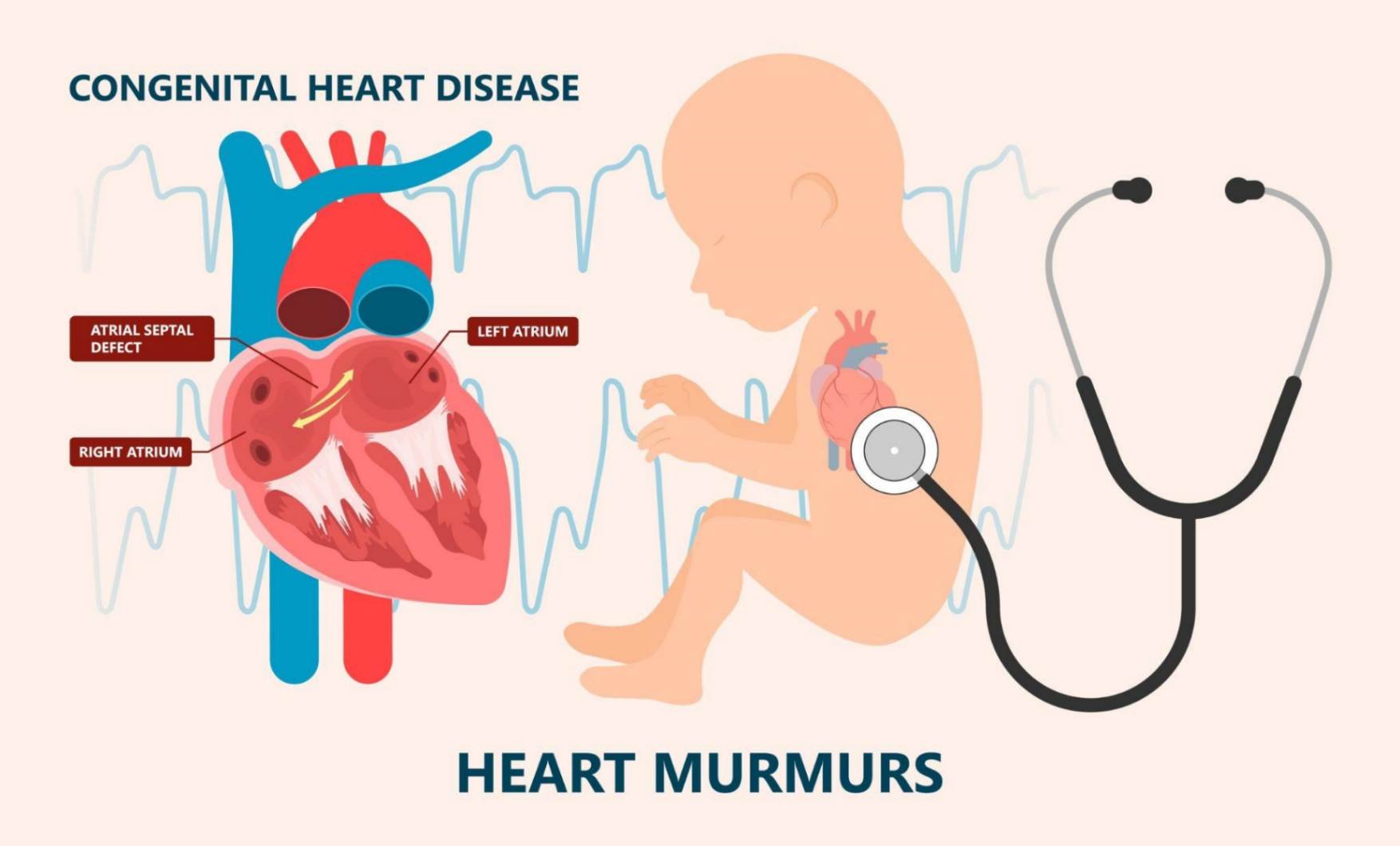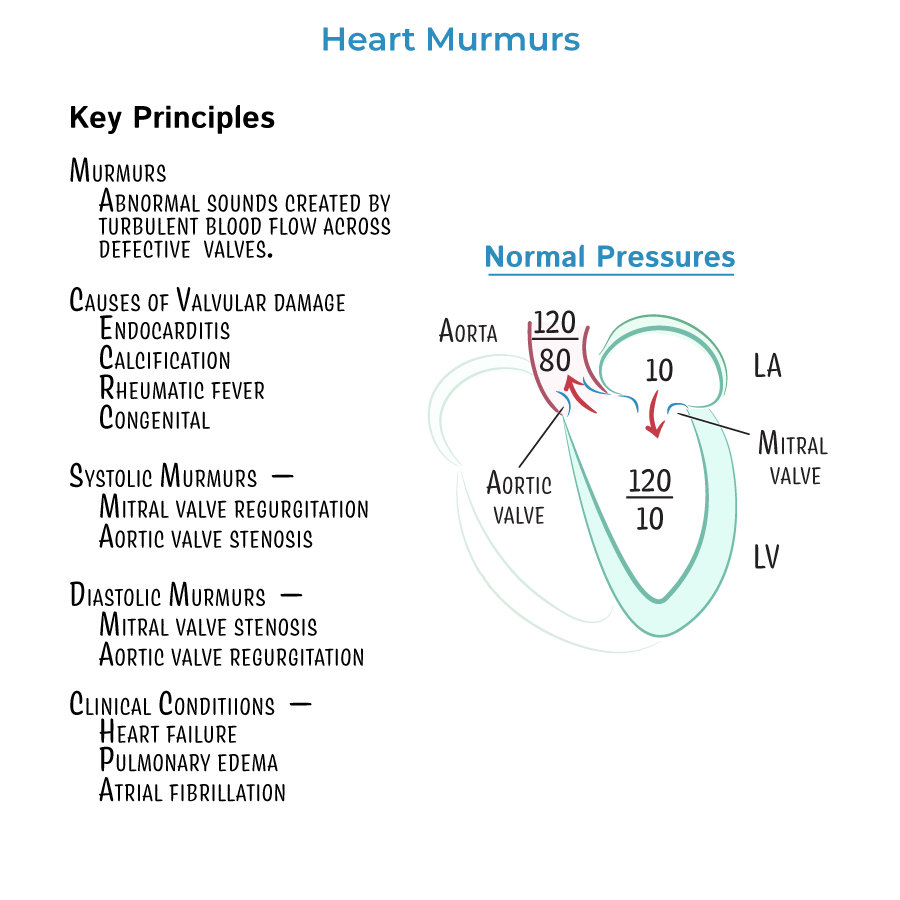
What is a heart murmur?
Heart murmurs are sounds made by blood flowing through your heart or nearby blood vessels. There are several causes of heart murmurs.
Usually, heart murmurs can be heard only through a stethoscope (a medical instrument doctors use to listen to sounds in the body).
A normal heartbeat is made up of 2 sounds — ‘lubb-dubb’. Those are the sounds made when your heart valves close during each heartbeat.

Heart murmurs are whooshing or swishing sounds heard between the sounds of the heartbeat.
Heart murmurs can be there at birth (congenital). They can also develop later in life. Heart murmurs aren’t a disease. But they can be a sign of an underlying heart problem.
What causes a heart murmur?
Innocent heart murmurs
Heart murmurs can sometimes be heard even when your heart is normal. These are sometimes called ‘innocent or flow murmurs’. This can happen when blood is flowing through the valves your heart.
Innocent murmurs usually become more audible when your heart rate and blood flow increases. This may be happen during:
- exercise
- pregnancy
- periods of rapid growth, such as adolescence
These types of murmurs may also be associated with other medical problems, such as:
- fever
- anaemia
- hyperthyroidism
Anaemia is when you don’t have enough red blood cells to carry oxygen around your body. It is often caused by blood loss or low iron levels.
Hyperthyroidism is when you have too much thyroid hormone in your body.
Abnormal murmurs
Abnormal heart murmurs are caused by an underlying heart problem, which may need treatment. These heart murmurs can happen when your blood is moving:
- abnormally between the chambers of the heart
- through the main arteries from the heart
Abnormal murmurs may be caused by valvular heart disease (problems with the valves in the heart). They can also be caused by some congenital heart diseases (heart problems you are born with, such as a hole in the heart). Problems with the heart valves include:
- stenosis — where your heart valves are too narrow or stiff
- regurgitation — where your heart valves don’t close properly and blood leaks in the wrong direction
Heart valve problems can be caused by ageing and other conditions including:
- heart muscle damage from a heart attack
- cardiomyopathy (a condition that affects your heart muscle)
- rheumatic heart disease
- endocarditis (infection of the inner lining of the heart and its valves)
What symptoms can be associated with a heart murmur?
Symptoms that can be associated with heart murmurs include:
- shortness of breath (either when exercising or at rest)
- light-headedness or dizziness
- blackouts
- rapid or irregular heart beat, or heart palpitations
- chest pain
- fatigue (tiredness)
- swelling of the feet and/or legs
- difficulty doing normal daily activities
Babies or children with a heart murmur due to a heart problem may also have:
- a bluish tinge on the skin around their lips or under the fingernails
- poor growth
- pale skin
Babies might have difficulty feeding. This includes getting sweaty when feeding.
See your doctor if you or your child experience any of these symptoms.
How is a heart murmur diagnosed?
Your doctor is likely to first pick up a heart murmur by listening with a stethoscope.
If your doctor hears a murmur, they may recommend further tests.
These tests can include the following:
- An electrocardiogram (ECG) — is a machine that records your heart’s electrical activity.
- A chest x-ray — is used to check if your heart is bigger than normal, or if you have any other signs of heart problems.
- An echocardiogram — is a heart ultrasound.
- Cardiac catheterisation — is when dye is used to help your doctor see your coronary arteries on x-ray.
Are heart murmurs dangerous?
Some heart murmurs are not dangerous and don’t need to be treated. But all need to be checked by a doctor.
How are heart murmurs treated?
Treatment will depend on the underlying cause of your heart murmur.
Some heart problems can be treated with medicines.
Sometimes procedures and surgery are needed to repair congenital heart conditions and problems with heart valves.
